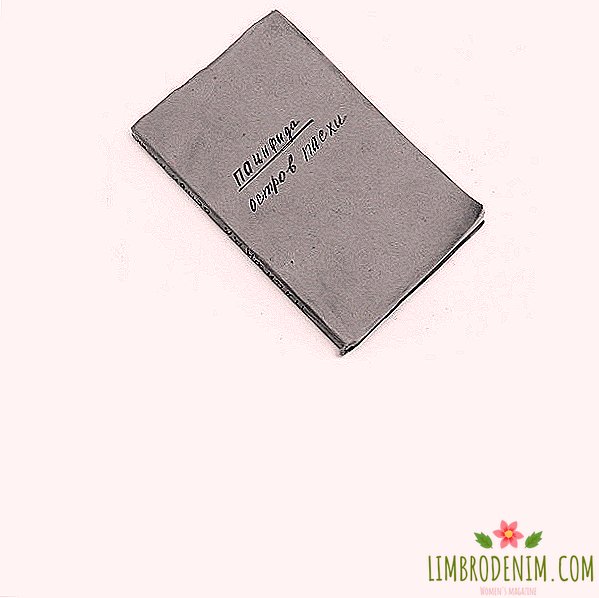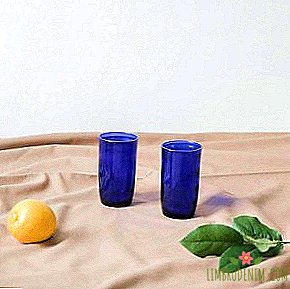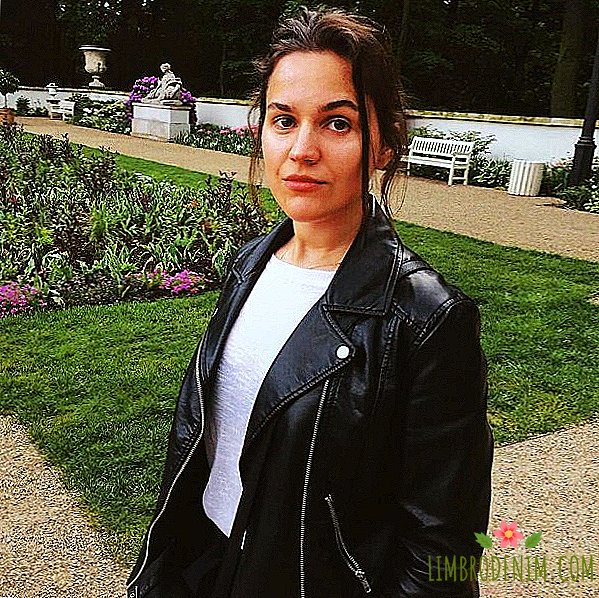How I moved to Tel Aviv and took life into my own hands
In a series of materials Our heroines talk about radical changes: how to move to live in another city or country, why to do it and how to solve the simplest everyday problems, without which they also can’t do. Following the stories of Istanbul, Tokyo and New York, it was the turn of the story of Tel Aviv.

Country of happiness
I became an emigrant before I really emigrated. During my school years, traveling around Europe with my mother, I looked at each new city through a personal lens. Could I come here? Could you live more than one year? Would you have mastered a language? Would you get along with people? And there was always something that could not be reconciled: the stiffness of the Germans, the rainy weather of London, the unnatural romance of Paris.
At the age of 18 I came to Israel for the first time. It was an organized trip for Jewish youth, they drove us around the country for ten days, showed deserts and kibbutzim, introduced soldiers and Jewish tradition, told about the Holocaust and the first Zionists. The trip was a sweet Hanukkah donut, with three fillings and even sprinkled with colored dragees on top. Everything seemed too good to be true. We were fascinated by the scenery, made friends with the soldiers and fell in love with this glossy image of a happy country created by the best marketers in the world. I returned to Russia with only one thought - I should go to Israel again and make sure that everything is really so beautiful there. Where is the war? Where are the radical religious Zionists? Where are all these stereotypical gambling Jews from anecdotes?
Despite the fact that the whole history and image of an ideal country seemed quite true, I wanted to know the real Israel. Less than six months later, I checked in to the couchsurfing, collected a hiking backpack and went on a two-week journey from north to south. Then there was the third journey, the fourth, the fifth ... And I lost count. First I stayed with completely unfamiliar people, then with their friends, then both of them turned into my friends, and I began to return to visit someone who practically became a member of the family. It was the time of crazy actions, hot love and happy travels around the country. Every time I fell in love more and more and could not believe myself: when will this euphoria pass? It is impossible that the country had absolutely no flaws! There were drawbacks, of course, but they seemed so microscopic and insignificant that they didn’t want to pay attention to them.

Relocation and housing search
After five years of constant travel to Tel Aviv, I finally decided: it's time. Here it should be noted that moving to Israel was not just a change of location for me - for the first time I decided to live separately from my parents. At 23, I came to the realization that either now or never. I had been preparing for almost a year and, a couple of months before departure, I started making plans slowly: I bought tickets, quit my job, found an internship in Israel. In October 2014, I packed up one suitcase, put on my favorite sneakers, sunglasses and flew to the warm Tel Aviv. I was not quite the typical representative of the Jewish diaspora. I didn’t have a single relative in Israel, except for my grandmother’s nephew’s daughter, whom we saw once and a long time ago. But despite this, I did not have time to land, as they immediately began to invite me to Shabbat dinners, family celebrations and friendly gatherings. In the eyes of others, I was a real hero: so young, without a family, I took it all and left it and moved to live in Israel. Everything was so touching, they took care of me and offered any help. It seemed as if the whole country was one big family, and each new acquaintance was my close relative.
All the first week in the city I was looking for an apartment. In Moscow, I thought that it was not easy to find in advance something via the Internet, who would decide to rent me an apartment on Skype? But it is worth coming - and the doors of a cozy bright apartment in the center of the city will open for you. It was not there. To find a good apartment in Tel Aviv for reasonable money means to hit the jackpot. The chance that this beautiful and affordable living space will be given to a person who is almost zero in a country without five minutes a week. In 90% of cases, signing a real estate lease agreement is necessary: a bank account with a certain amount on it, as well as a checkbook and two guarantors who will agree to pay the rent for you in case of any problem. You also need to know the language or find a lawyer to sign a contract in Hebrew. I had neither the one nor the other, nor the third. But with the help of Hebrew-speaking friends who helped to monitor sites and groups on Facebook, they found a tablet for half a year. Room with a balcony overlooking the boulevard; cupboard, full-length; lethal pressure of hot water in the shower; clean kitchenette and white fluffy cat - all this for $ 750 a month.
Property prices in Israel, and especially in Tel Aviv, are absolutely exorbitant. It is probably more realistic to buy two apartments in Moscow and a two-story loft in Paris than a one-room studio in the suburbs of Tel Aviv. But those who inherited property acquired in the 20th century can live in clover until old age and only do what to sell, buy and sell apartments again. The condition of the apartments themselves leaves much to be desired. Tiny kitchens or their absence, rooms with a window under the ceiling, a hole in the floor instead of a shower - all in four cracked walls for a thousand dollars a month. Sometimes, of course, there are new, bright and spacious dwellings, but then, as a rule, you still have to compromise, be it price, location or number of neighbors.
For a year and a little life in Tel Aviv, I managed to change three neighbors. At first it was a gay couple who rented a room in the apartment, which they also seemed to have rented, but I had the fullest feeling that everything in it, except, perhaps, me and my suitcase, belongs to them. The terms and conditions were dictated by the neighbors, the shelves in the fridge were divided into “yours” and “ours”, and I was even afraid to touch the TV in the common room. One day I didn’t turn off the heater in the bathroom, as in the morning there was a terrible message on Facebook that they weren’t my parents and I don’t have to follow me, as well as paying crazy bills for 12 hours of using expensive electricity. It was embarrassing and very disappointing: for the first time I ran into Israelis, who instead of saying “oh, okay, it happens to everyone, don't worry” scolded me like a girl.
Then there was half a year living with a 30-year-old Canadian student, with whom we had almost family relations: he bought food, I cooked it; in the evenings, before we split up into our bedrooms, we watched films together, argued about equality, and after a couple of months it seemed to me that we had been married for forty years, I know him as a peeling, and absolutely everything that he does irritates me . My last neighbor turned out to be the most organic: we both studied in Moscow, traveled a lot around the world, moved to Israel at the same time and eventually ended up on the same life stage - the process of adaptation in a foreign country. So now the evenings are held for drinking green tea brought from Russia, talking about Brodsky or choral singing of Zemfira songs. Either I finally learned to share space with unfamiliar people, or the mental background is really important in building any relationship, but life far from my parents finally gained its advantages.

Citizenship and first difficulties
For the first five months of life in the city of the sun, sea and parties, there was no good reason to return. The ruble began to fall, the screws screwed up, and emails from their homeland sounded more and more tragic. At the end of the internship, I was offered a job, new friends appeared and the swimming season began. I decided to apply for citizenship. It did not require much effort: it is enough to have a grandmother or grandfather, in whose birth certificates would mean "Jewish / -ka", and you already have the right to become a new unit of Israeli society. If there is no confirmation of Jewry, it is much more difficult to move. The only way out is to get a visa, either working or affiliate (in case your partner is Israeli). But both options require much more time and effort than the registration of citizenship for a Jew. With a successful scenario, a month after the submission of the documents, one can acquire the desired “Teudat-Zeut” - ID of an Israeli citizen.
With the acquisition of citizenship, and all the problems began: endless red tape at the ministries of internal affairs and removals, sickness funds and post offices, long bureaucratic procedures at work, a new exhausting apartment search, an acutely tangible language barrier - all under the bright sun, which was becoming hot and hot. All my life I was sure that I love the heat and hate the winter. I loved to go to the sea, lie on the beaches and always believed that plus 30 is better than minus 5. I believed until I changed the six months of Moscow winter to six months in Tel Aviv summer, frost on my eyelashes - with sweaty scruff, frozen fingers on wet palms, and ten layers of clothes on a swimsuit, although it is also hot in it. I learned that sunscreen should be smeared all year round, regardless of whether it is sunny, rainy, windy or cloudy; that it is necessary to go to a dermatologist once in 12 months and constantly monitor moles; that the more body parts are covered, the cooler is actually, because the body is not heated by direct sunlight, and free cut creates natural ventilation.
In Israel, I first had the fear of getting cancer. It seemed to me that these very recently loved and desired rays of the sun actually kill me. I turned into a real paranoiac: I bought a wide hat, I began to wear jeans at plus 30 and constantly get smeared with cream. Immediately I encountered a completely different approach to my health and medicine in general. Most of my colleagues at work go to doctors every month, be it a general therapist, a dermatologist, a breast specialist or a gynecologist. Receptions are recorded here regularly, and not when something starts to hurt or bother. They do a general check once a year and fearlessly agree to a biopsy only because there is a bad genetics in the family.
The medical system in Israel, by the way, is not as beautiful as is customary to talk about it. Locals joke that it’s good to give birth and die in Israel, you need a lot of patience and money for everything else. Doctors here often have two facets: they either send you to a million unnecessary checks and tests, or, on the contrary, antibiotics or antidepressants are prescribed for any tiny problem. The hospitals, of course, are clean, beautiful and equipped with the latest equipment, but doctors, as a rule, are narrowly specialized and work exclusively according to the protocol - which is probably correct, but for the time being it is completely unusual for me.

Nostalgia and Russians in Tel Aviv
The turning point of my "Israeli fever" was a short trip home before repatriation. The first time I returned to Israel with a baggage of certain expectations and certain choices. Vacation has now become a normal life: getting up at seven in the morning, a Hebrew school, work, household chores and early bedtime. I stopped traveling, I did not have the strength to meet with friends, read books or at least get out. The period of irritation and rejection began. As if the clock struck twelve, and the golden carriage turned out to be a pumpkin. Beautiful tanned Israelis turned into ordinary Eastern men, their emancipation turned out to be market-oriented arrogance, and Jewish solidarity turned into religious nationalism. It seemed that I would never be a real Israeli woman and would miss Moscow forever.
Before emigration, I did not understand much connected with Russia. People, politics, media, traditions and habits. All the time I felt myself to some extent a foreigner in my home country — rather a bystander than a citizen. Only when I moved to Israel and faced the first difficulties of integration, I realized how important many things are for me: Soviet films, Gogol books, Russian food and, most importantly, Russian-speaking society. All this suddenly became very valuable and dear. A year ago, I distanced myself from the Russian émigrés in Israel, until I realized how much we had in common.
The emigration of the 90s is very different from the emigration of the 2000s. Then people rode with nothing and with everything at the same time: they brought their diplomas, suitcases stuffed with mountains of things - from blankets to sheepskin coats, literature, musical records and even furniture, but they didn’t know what to expect and what to do about it. Would they like a Soviet doctoral degree here? Will they need all these coats and caps? Will there be those with whom you can discuss Tolstoy? Many of them ended up somewhere at a crossroads, with broken illusions and an unrealized career: they have already been forgotten and not expected in the new Russia, and in Israel they have not found their place.
Today, young, active, ideological ones are going to Israel - the very middle class that grew up on “economic stability” and fled from Putin’s regime. It is hard for me to judge all of Israel, but in Tel Aviv I will more and more meet representatives of creative professions: directors, writers, designers, producers. It is surprising that, in general, they all soberly understand that it will be almost impossible to find something in the specialty here in Israel without language and connections, but nevertheless nobody surrenders. In the 90s, many had to wash the floors and care for the sick, hiding away in the locker their doctoral degrees and scientific work, now - someone retrains in a graphic designer, someone earns thousands in tourist restaurants, someone steadily spends exported Russian money. Emigration in the 90s meant a new, not always happier life, emigration of the 2000s - a transitional and often quite happy period.
From time to time I am disturbed by some feeling of shame, or curiosity, due to the fact that I left Russia in a period especially important for her. I see on Facebook how many of my friends and acquaintances, instead of completely falling into depression and looking for a way out to the West by hook or by crook, remain and try to change something, even if it is within the framework of one private school, one hipster bar or one online channel. On the other hand, now, probably, the whole world is in transition, on which a lot will depend. I am reassured by the fact that in Tel Aviv I also meet young and active people who are trying to change something not only in themselves but also in the world around them, their patriotism does not cause disgust, and Jewish identity does not turn into nationalism. Although it is not so smooth.
I remember that I was very surprised by the 2015 elections. Many parties took part in them, various political meetings and lectures were held, but the majority still did not know who to vote for until the last minute. I remember walking along Rothschild Boulevard in the evening, ten minutes before the first results were announced, and I was struck by the emptiness on the street. Everyone sat at home or in bars, where instead of football they showed news, and waited for results. The center-right national-conservative party, led by Bibi (Benjamin Netanyahu), won, and before that it had a leading position in parliament.
For the next week, I saw the sad faces of my friends and colleagues. Nobody could believe that with all the existing problems of an economic, social and religious nature, victory would still be beyond questionable, but still stability. When I, excited from everything I saw, asked my friend: "So what now? Protests? Rallies? Boycotts?" - he laughed and replied: "Hey, we are not in Russia. An honest majority won. And even if this majority are morons, can we not go to protest against democracy?" It was then that a great truth descended on me: it is not necessary to live in a totalitarian regime in order to sincerely believe in nationalist ideas, discriminate a minority and support a military solution to conflicts.
I hold the opinion that adaptation to any emigration depends primarily on a personal attitude. If you look for a dirty trick in everything, cycle on failures and constantly remember how good it is there and not here, the glass will always be half empty: the work will be boring and poorly paid, the apartment will be empty and uncomfortable, the Israelis will be uneducated savages, terrible and the same type. But in the summer I managed to rebuild myself in the necessary fashion: now I try to perceive any incidents as adventures, any mistake as a lesson, and mental inconsistency as a good motivation for a more detailed study of culture.

Brutal prices and problems with work
By the way, about the culture. At first it seems that it is not at all in Israel: one endless beach, flip-flops and drinking coffee and stronger drinks in cafes and bars in the central streets. After a while, I realized that there is a culture in Israel, it’s just that it’s different, or it’s not materially accessible to everyone. Сейчас я как раз работаю над тем, что собираю информацию о различных культурных событиях в городе, доступных туристам или англоязычным репатриантам. И каждый месяц набирается не один десяток концертов (в том числе и классических), спектаклей, выставок и других мероприятий. Только цены на них разнятся от 12 долларов за вход до 150 за представление (как в случае со спектаклем "Бродский/Барышников", билеты на который стоили 130-140 долларов).The minimum wage in Israel is about $ 1,200, and this is before taxes. There are some loosening for new repatriates: for the first six months after repatriation, for example, the state makes cash payments, which are tangible as a bonus to the salary, but for which it is almost impossible to rent an apartment and provide yourself normally.
In general, the average salary in Israel, of course, is higher than the Russian, while income taxes range from 10 to 50%, while prices for food, transport and housing are unreasonably high. Even with the last price spike in Russia, life in Tel Aviv is still more expensive. Most Israelis either work several jobs or live partly at the expense of their parents. But freshly baked emigrants rely on the falling parental ruble in the country of a stable shekel is meaningless, so you have to survive on your own.
Finding a job in Israel at the same time is incredibly easy and terribly difficult: in terms of the number of startups, Tel Aviv can easily compare with Berlin and San Francisco. Very many people from the former USSR found themselves in giant Internet holdings and computer companies. If you can call Java or Python as your second language, then knowledge of Hebrew can already be secondary. It is also quite easy to find a job in the service sector: most of the bars and restaurants along the sea are foreigners or newly-made citizens who only need to know two pages of the menu in Hebrew, and even those may not be useful because most visitors to expensive establishments on the waterfront Russians, French or Americans.
On the other hand, not knowing the language and not having the necessary contacts in a notebook, finding a decent job for the humanities who do not want to engage in any sales and service on the phone is almost impossible. In 2015, a huge wave of metropolitan intelligentsia surged in Israel, most of which are either unemployed or continue to do something for Russia, but this option is becoming increasingly meaningless with each passing month due to the fall of the ruble. I know many who are depressed because of their job search: millions of emails with resumes all over the Internet, but no emails in return.
After a while you realize that it is the job search that turns you into a real Israeli. It will not take a couple of months, as you begin to call each employer several times a week without hesitation, checking whether he received your resume, and learn how to report at any opportunity that you are looking for a job. For you to pay attention, read the resume and finally invited to an interview, sometimes it is enough one call from the side or the phrase: "I am from Itzik, David's nephew." Because, as a rule, everyone in Israel will have a friend, David, who will have Itzik's nephew - which means that you are almost a relative.
After a while, I can say that now I really love Tel Aviv. He and I went through all the stages of marital relations: from mad passion and love at a distance to turning point of despair and deep misunderstanding. Now I know that if you survive these first quarrels, stop constantly comparing the present and the former, listen carefully and try to see something more than the outer shell, then time will pass, and frivolous love mixed with sensible criticism will lead to true harmony and honest acceptance of each other as we are. Tel Aviv and I accepted each other. He made me more free, open, independent and responsible. I do not know how long this relationship will last, but I am firmly convinced that for now this is the best choice I've made in my life.
Photo: 1, 2, 3, 4 via Shutterstock, Flickr





